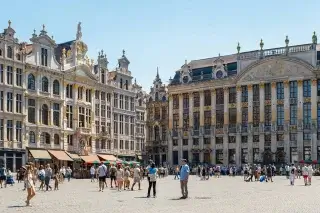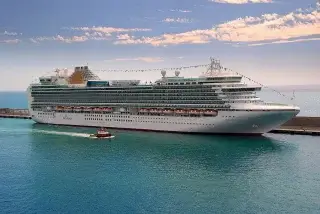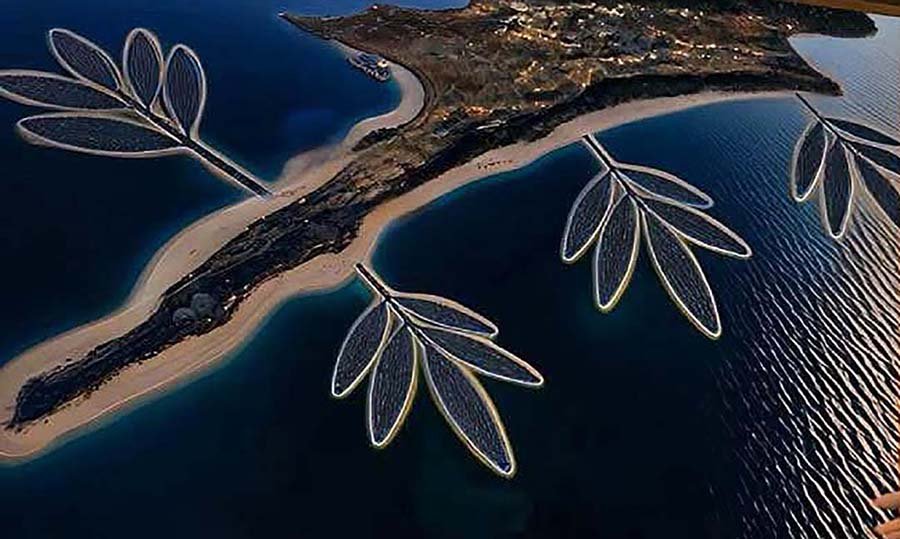read also
 Turkey’s Property Market Faces a Tax Shock
Turkey’s Property Market Faces a Tax Shock
 Foreigners in the U.S. are being stripped of citizenship: new restrictions
Foreigners in the U.S. are being stripped of citizenship: new restrictions
 Middle East Hotels Show Resilient Growth
Middle East Hotels Show Resilient Growth
 Brussels Redefines Tourism’s Strategic Role
Brussels Redefines Tourism’s Strategic Role
 Moscow developers abandon installment plans for new-build apartments
Moscow developers abandon installment plans for new-build apartments
 World Cruises Reshape Travel in 2026
World Cruises Reshape Travel in 2026
Вusiness / Real Estate / Investments / Tourism & hospitality / Reviews / News / Кипр / Real Estate Cyprus 06.09.2025
North Cyprus Plans Artificial Islands: Environmentalists Oppose

Photo: Cyprus Mail
North Cyprus has unveiled plans to construct artificial islands off the coasts of Karpas and Kyrenia. The initiative comes from Turkish construction holding Tasyapi together with T&T Airports, which operates Ercan Airport in Nicosia, reports Cyprus Mail. The project is expected to attract millions of tourists.
The concept, developed by Emrullah Turanlı, head of Tasyapi and co-owner of T&T Airports, envisions a mixed-use space combining residential and tourism infrastructure. The islands would host boutique villas, hotels, and world-class marinas. Roads are planned with citrus, olive trees, and bougainvillea, supported by modern irrigation and energy-saving technologies.
Logistics is a core element: a new port in Morphou with 15 million tons annual capacity aims to expand shipping and ease congestion on existing sea routes. Coastal areas around Famagusta, under North Cyprus control, are designated for tourism, boosting hotels and retail.
The energy plan includes solar and wind power plants to supply residential areas, resorts, and new greenhouse complexes for year-round food production. Developers also promise drone taxis for fast access to remote areas like Karpas, and even a covered ski resort with artificial snow for year-round winter sports.
Project sponsors estimate foreign tourist arrivals could quintuple to 15 million annually, with revenues of €50 billion — comparable to the GDP of a small European state. Turanlı described it as “a future that will not remain on paper, but bold enough to exceed the dream.”
However, environmental groups strongly oppose the plan. The Green Action Movement warns that artificial islands and heavy coastal development would irreversibly damage marine ecosystems, destroy flora and fauna, and worsen environmental problems.
North Cyprus attracted over 1.8 million foreign visitors in 2024, up 18.6% year-on-year. Turkey remains the top source, but arrivals from Europe are growing rapidly, with overnight stays from Norway and Belgium up 502.4% and 443.8% respectively. Germany, the UK, Russia, and Iran also contribute significantly.
Despite rising tourism, political and legal risks remain. North Cyprus changed foreign property ownership rules: Turks can buy up to three properties, all others just one (max 1,338 sqm). Agricultural and forest land, as well as shared-title properties, are off-limits. Stricter developer rules now require interim title deeds and mandatory land registry, while foreign-owned companies face the same quotas as individuals.
The republic is recognized only by Turkey, creating risks for international investors. Many properties hold dual titles, and buying or renting such real estate can result in criminal liability in the EU. Rental yields remain modest at around 6%, raising concerns about unfinished projects and empty apartments.
Подсказки: North Cyprus, Cyprus real estate, artificial islands, tourism, environment, investment, Tasyapi, Kyrenia, Karpas, Famagusta


